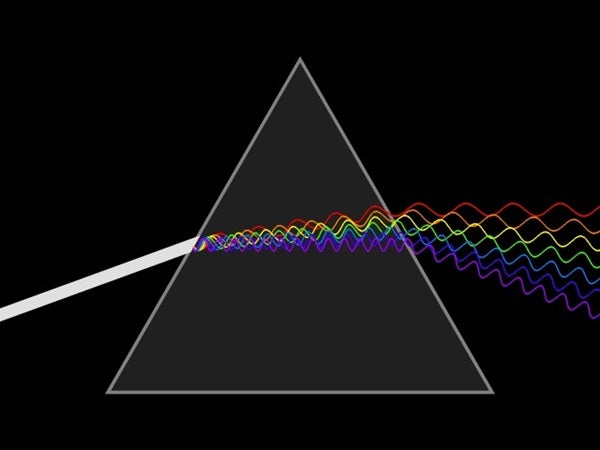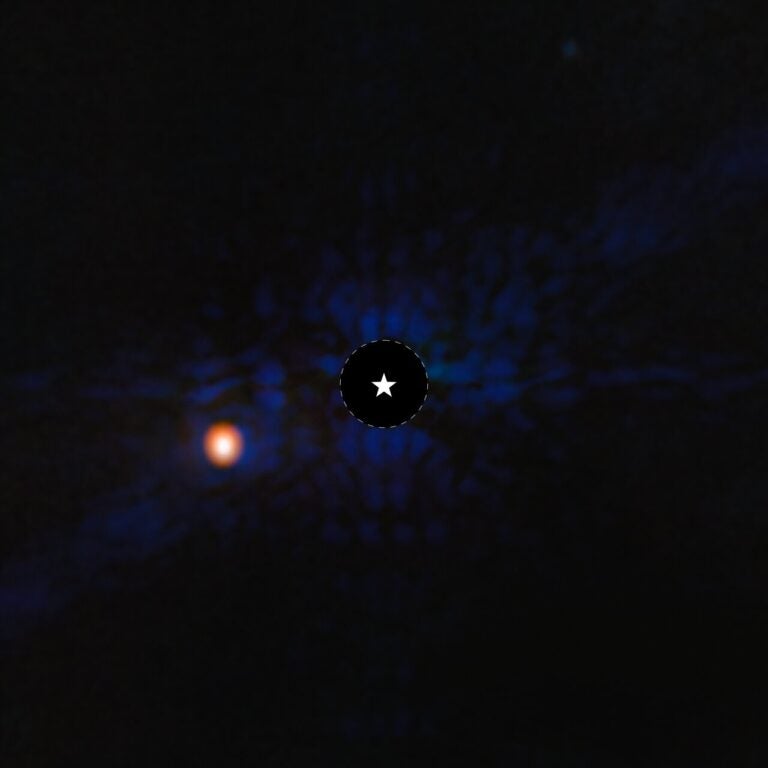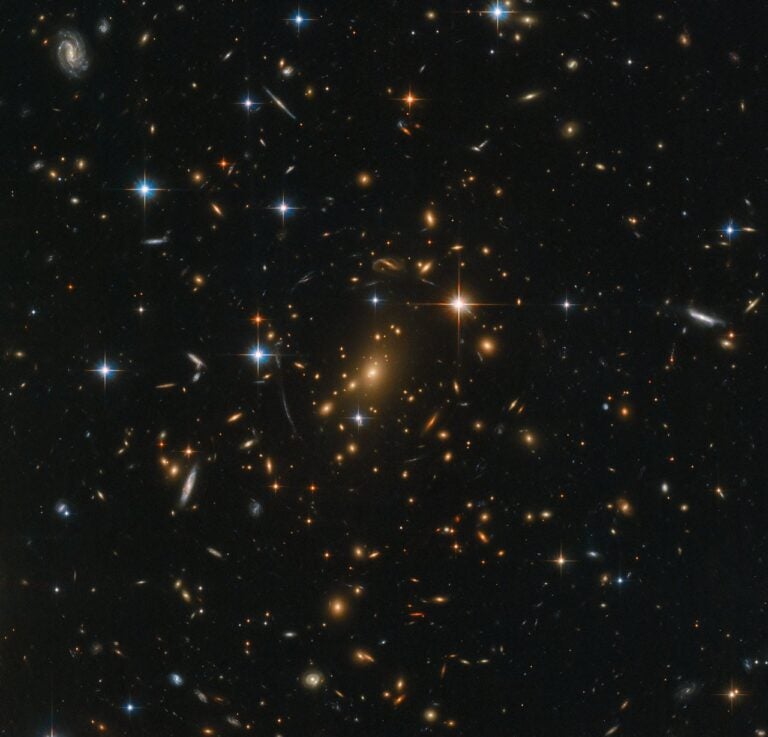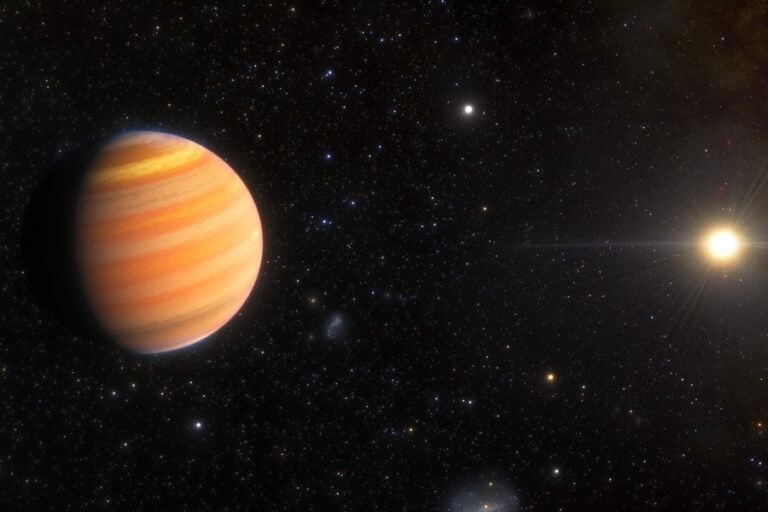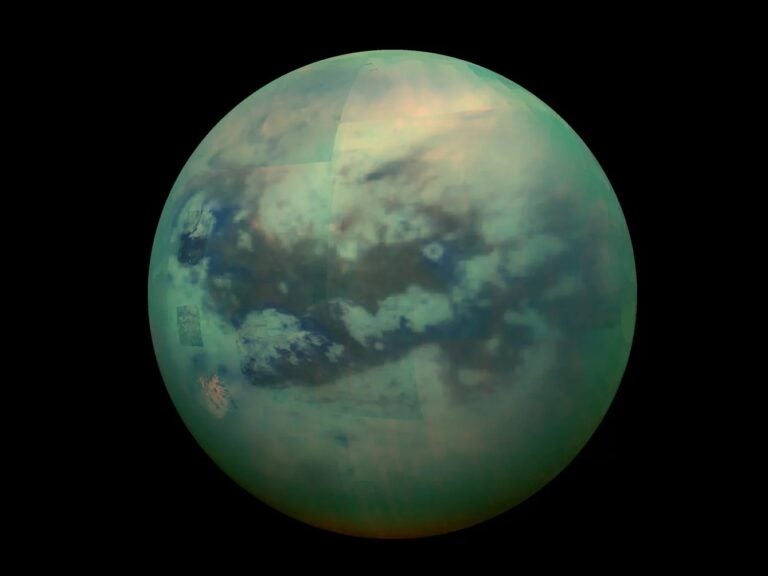A familiar example of dispersion occurs when white light passes through a prism, which separates the light into its constituent colors. This occurs because different wavelengths (frequencies) of light take different paths through the prism. As light passes through the prism, it is absorbed and re-emitted by the atoms of the prism differently, depending on its frequency. Violet light is slowed down by this absorption and re-emission process more than red light, and thus the two travel very different paths, spreading out by the time they exit the prism.
According to Einstein’s theory of general relativity, gravitational waves do not experience dispersion in this way. In other words, provided that general relativity is an accurate description of nature, high-frequency gravitational waves should travel at exactly the same speed (the speed of light) as low-frequency gravitational waves. There should be no preferential absorption or re-emission of gravitational waves as they travel through space-time, regardless of their frequency. Many alternative theories, however, predict that gravitational waves could experience dispersion as they travel through space-time; these theories treat gravity and gravitational waves differently from Einstein. If the nature of gravity is different from what Einstein states, then gravitational waves might be allowed to disperse.
LIGO and Virgo have both looked for dispersion in the gravitational waves detected from merging black holes and neutron stars, but have so far found that all the different frequencies are arriving at the detector at the exact same time, just as Einstein predicted.
Robert Naeye
Contributor

